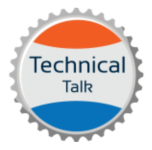In the digital age, prioritizing the safeguarding of data privacy is not just advisable; it’s imperative. As our lives become increasingly intertwined with technology, from personal details to sensitive business information, the need to secure data has risen to the forefront of responsible data management. The ubiquitous nature of digital transactions and interactions underscores the critical importance of protecting information from unauthorized access and potential breaches. Organizations and individuals alike must recognize the paramount significance of implementing robust measures to ensure the confidentiality and integrity of data. Responsible data management goes beyond mere compliance; it is an essential commitment to the trust and confidence of users in an era where data has become a cornerstone of our digital existence. By embracing this responsibility, we fortify the foundation of a secure and trustworthy digital landscape.
Understanding the Importance of Data Privacy
Beyond a legal necessity, ensuring data privacy is a fundamental ethical responsibility for organizations. Recognizing the profound significance of safeguarding individuals’ personal information is paramount in building a trustworthy relationship with stakeholders. The consequences of privacy violations extend beyond legal ramifications to the erosion of trust, ultimately damaging reputations and relationships. When organizations prioritize data privacy as an ethical obligation, they signal a commitment to respecting the rights and expectations of individuals. This approach not only aligns with regulatory requirements but also contributes to fostering a positive perception of the organization. Upholding the ethical imperative of data privacy establishes a foundation for transparent and responsible data management, creating an environment where individuals can confidently engage with organizations knowing that their privacy is a respected and protected priority.

Legal Frameworks and Compliance Measures
Furthermore, adhering to established legal frameworks is foundational. Regulations like GDPR and CCPA set the standards for data protection. Organizations must align their data practices with these regulations, ensuring compliance to mitigate legal risks and build a foundation of trust with stakeholders.
Implementing Robust Access Controls
Controlling access is central to data privacy. Employ stringent access controls, granting permissions based on job roles and responsibilities. Regularly review and update access privileges to align with personnel changes and evolving data needs, minimizing the risk of unauthorized access.
Encryption: Shielding Data from Prying Eyes
Encrypting data at rest and in transit is a formidable defense. Utilize robust encryption algorithms to convert sensitive information into unreadable code, ensuring that even if unauthorized access occurs, the data remains incomprehensible and useless.
Conducting Regular Privacy Audits
Periodic privacy audits are indispensable for ensuring ongoing compliance and identifying potential vulnerabilities. Conduct thorough assessments of data handling practices, security measures, and compliance status. This proactive approach helps organizations stay ahead of emerging privacy challenges.
Staying Informed in a Dynamic Landscape
In the dynamic realm of data privacy, staying vigilant is paramount as the landscape continually evolves. Regularly update your knowledge on industry trends, stay abreast of evolving privacy regulations, and embrace advancements in privacy-enhancing technologies. Adapting strategies accordingly is vital for maintaining robust data protection measures. By remaining informed and proactive, organizations can effectively navigate the intricacies of the ever-changing data privacy landscape, ensuring they not only meet current compliance standards but also anticipate and address emerging threats and regulatory shifts. This commitment to continuous learning and adaptation is key to upholding a resilient and future-proof data protection framework.
Conclusion
In conclusion, safeguarding data privacy is a multifaceted endeavour. From legal compliance and technological safeguards to employee education and proactive planning, a holistic approach is necessary. Organizations that prioritize and implement comprehensive data privacy measures not only comply with regulations but also build trust, fortifying their reputation in an age where data is a valuable currency.

